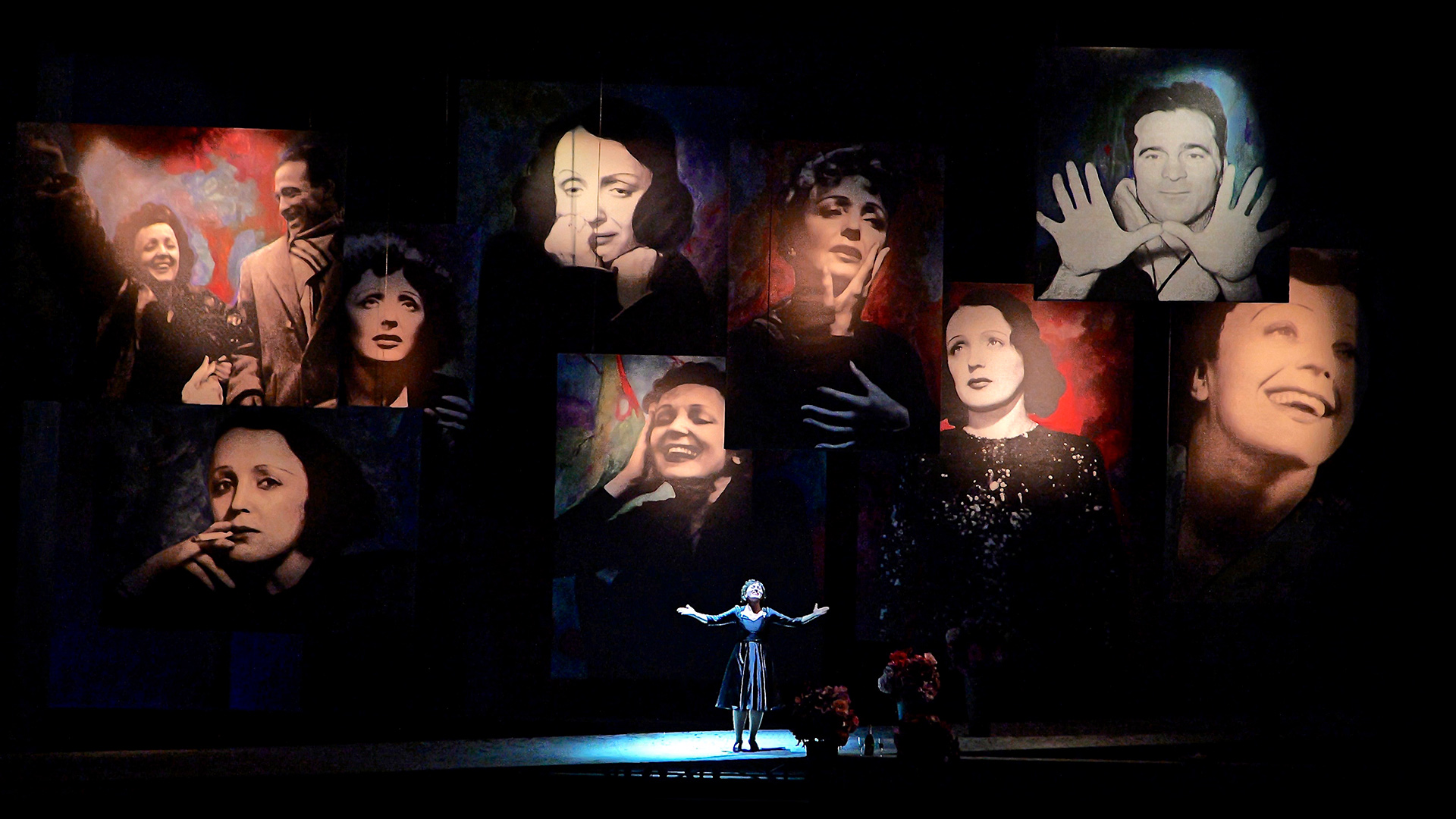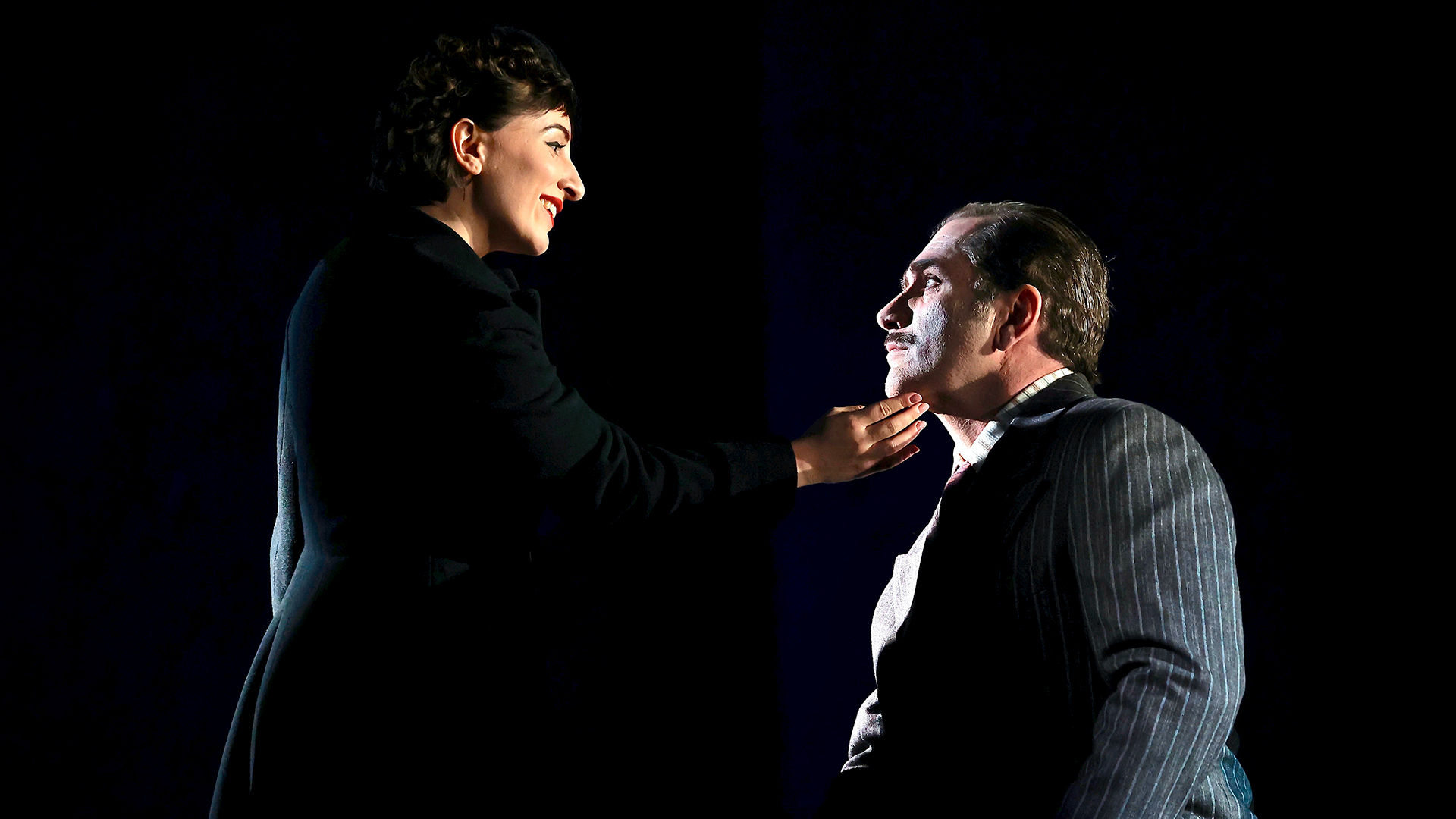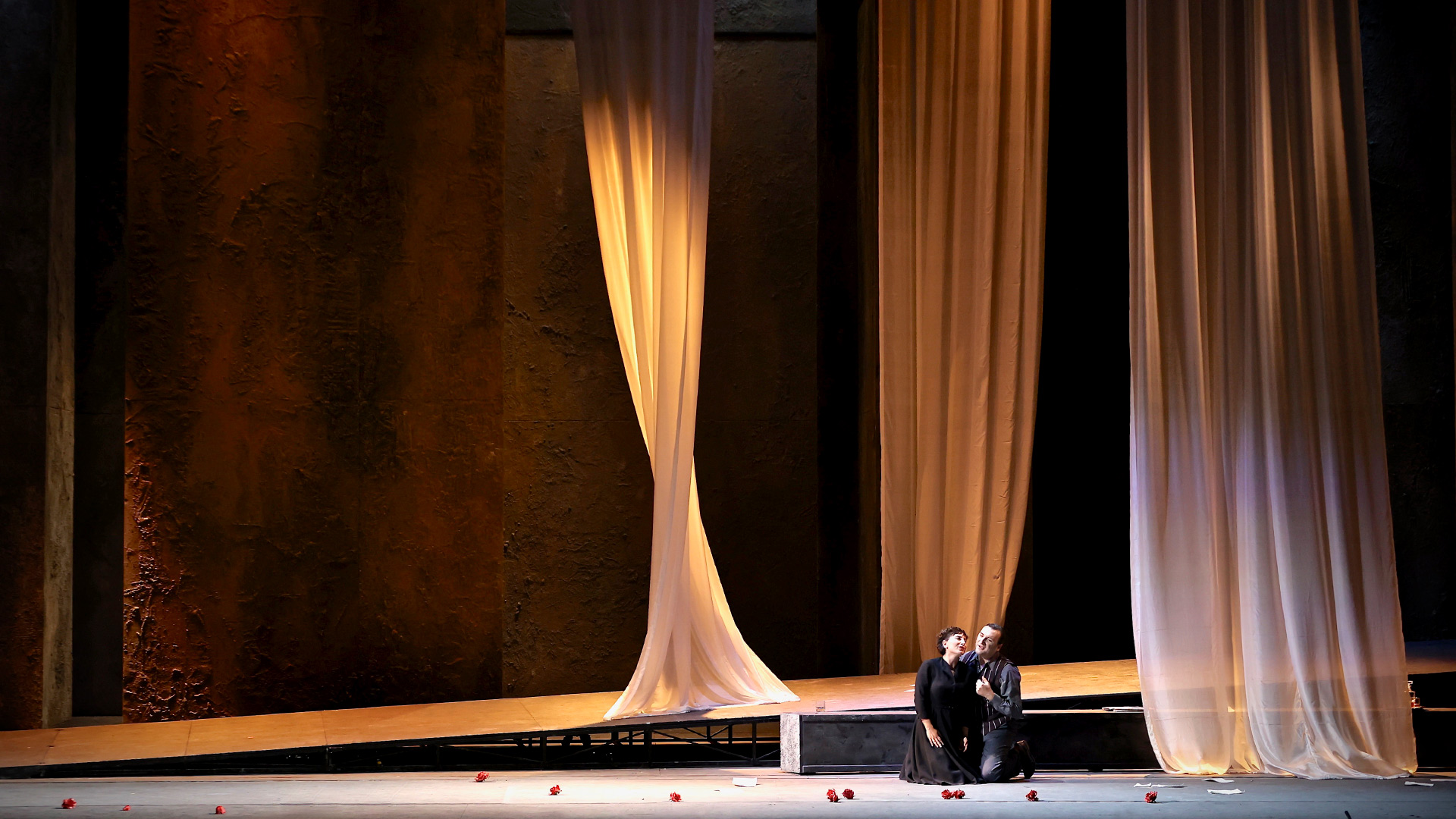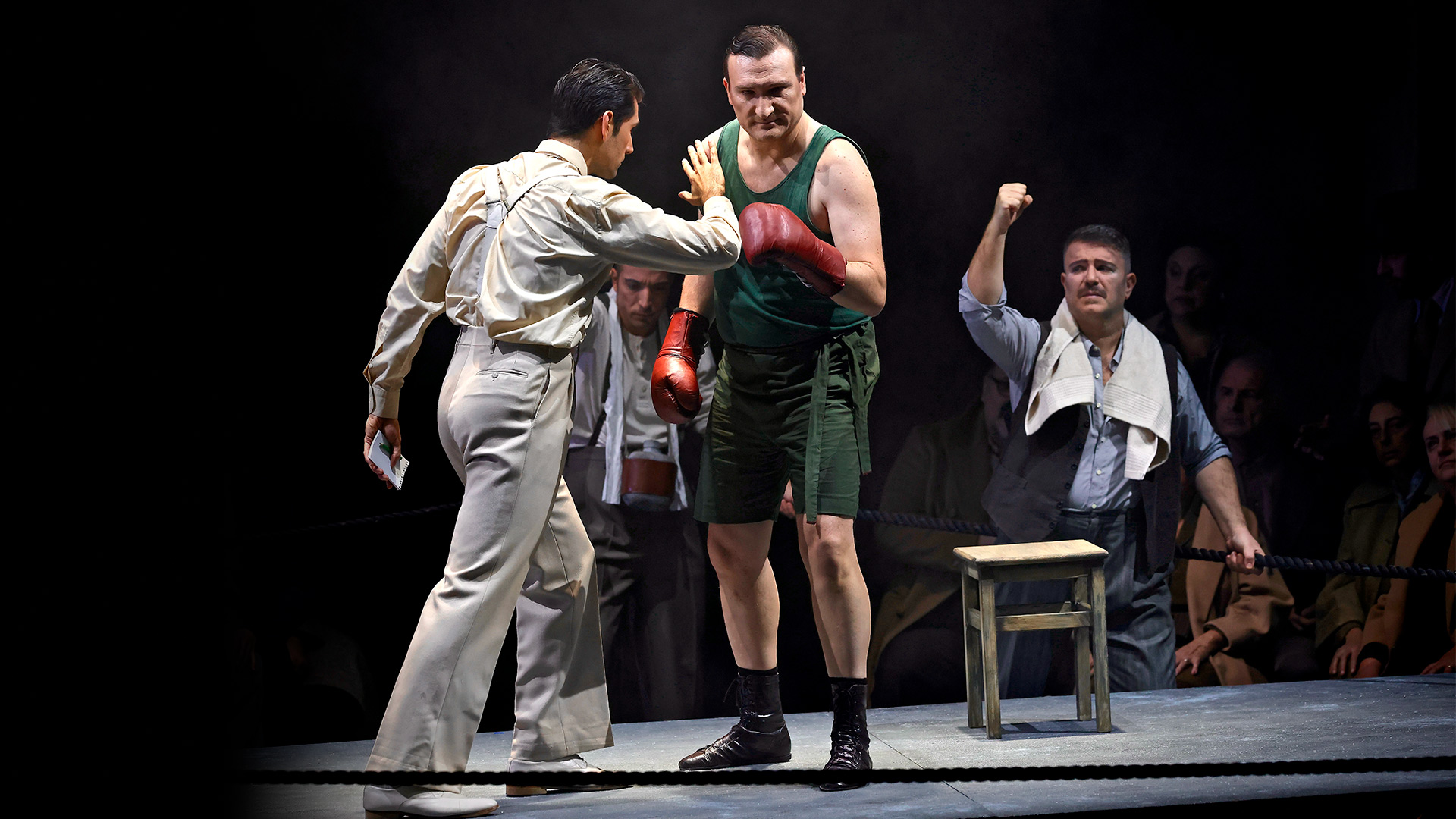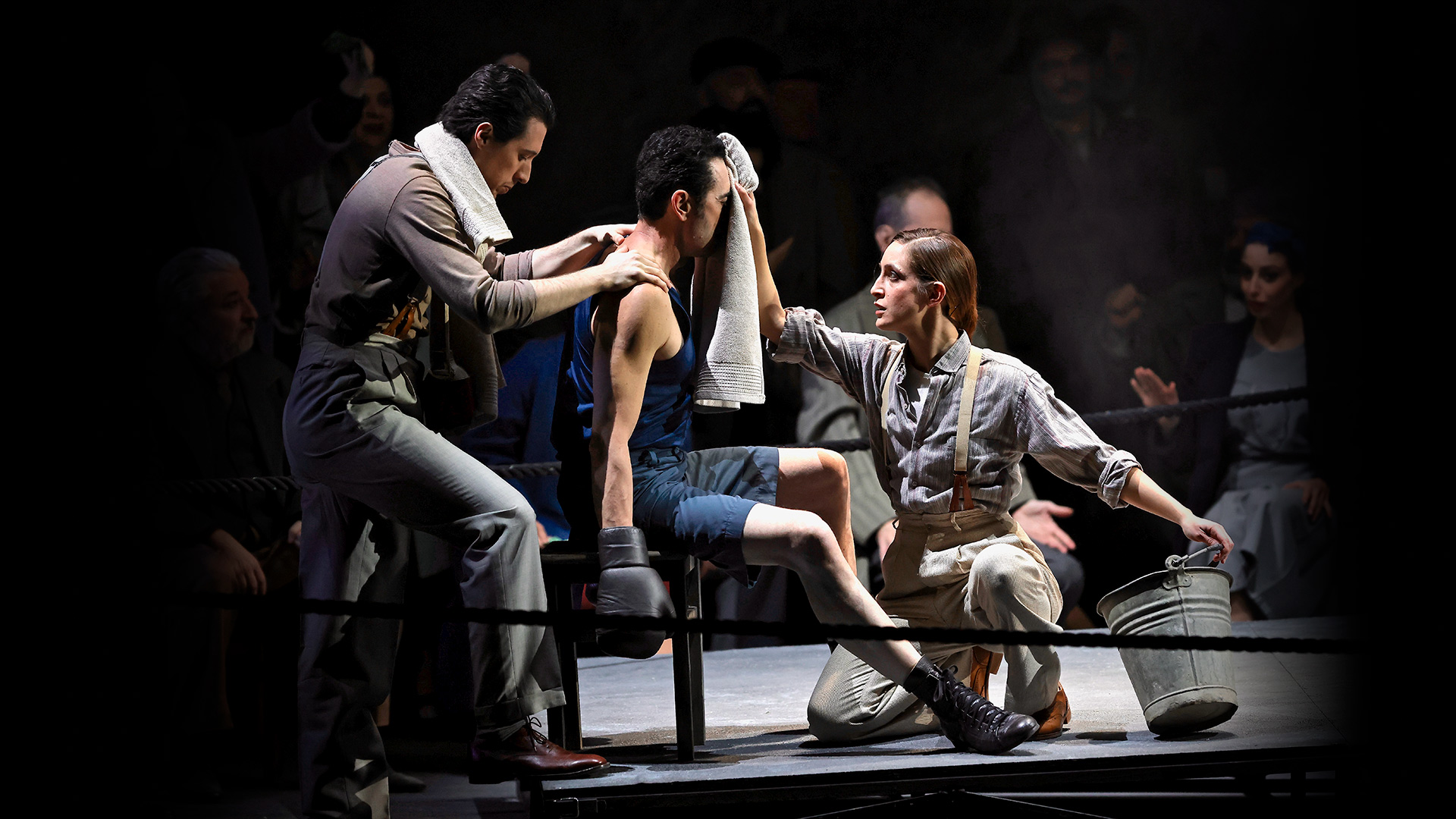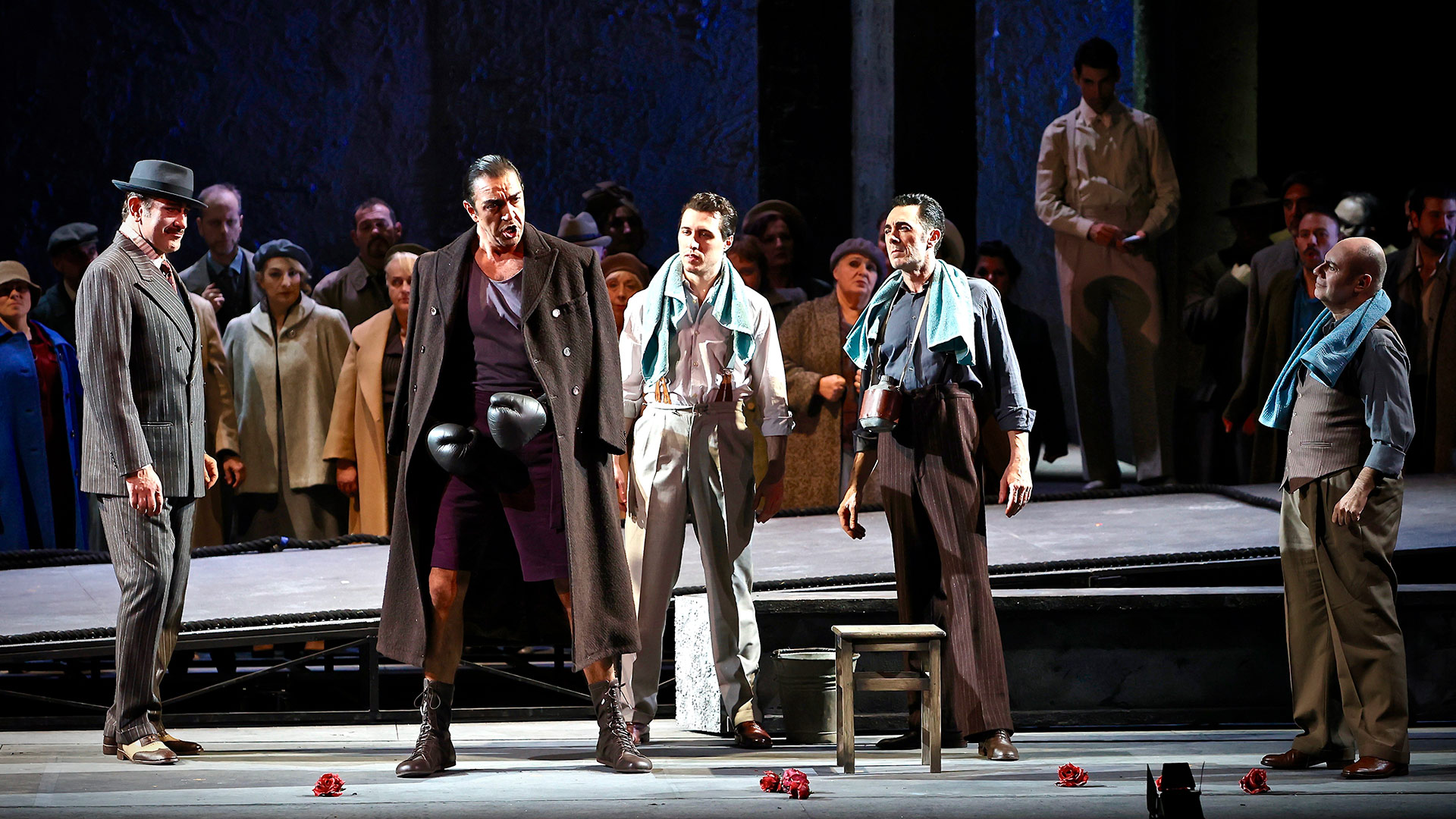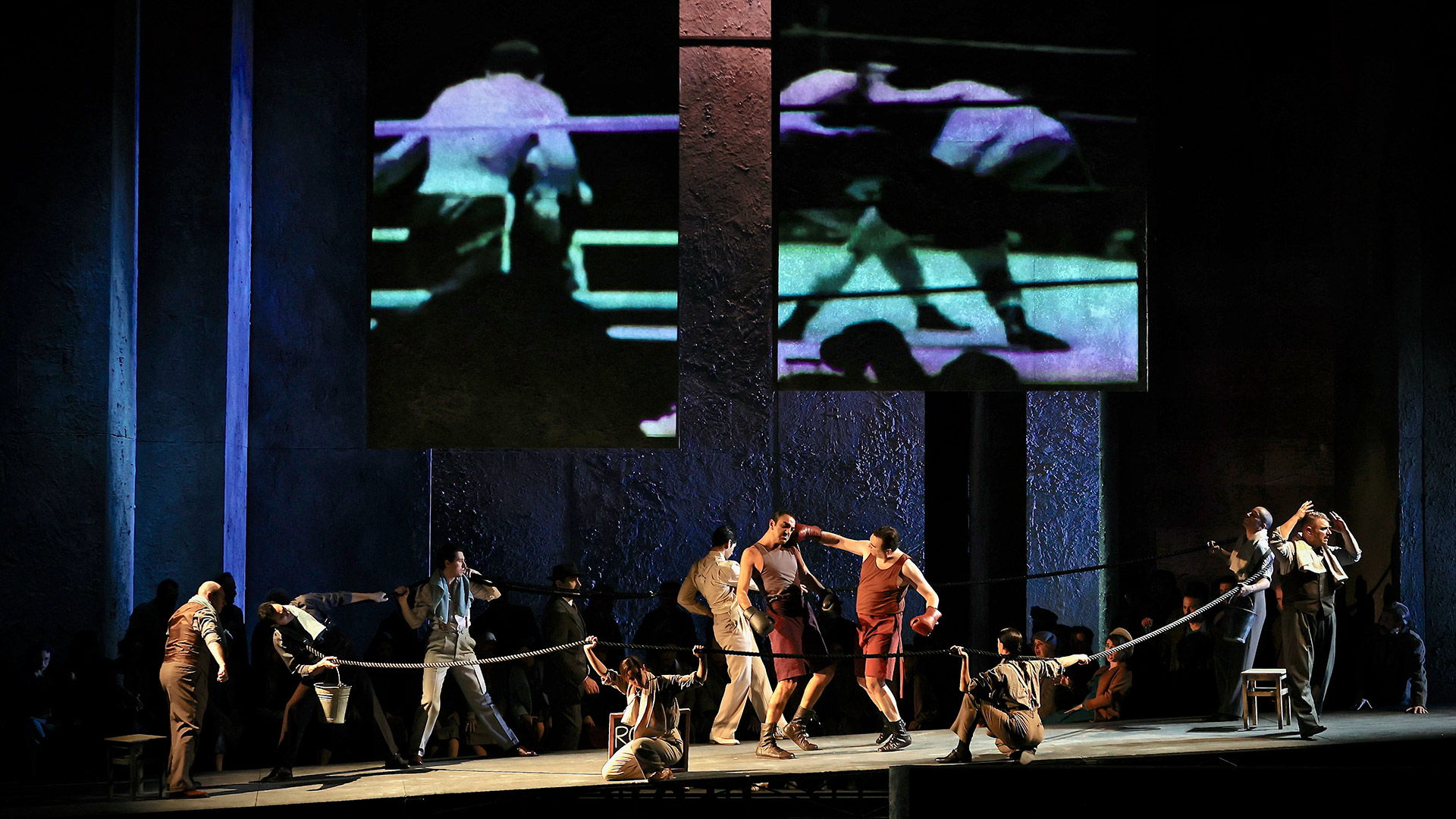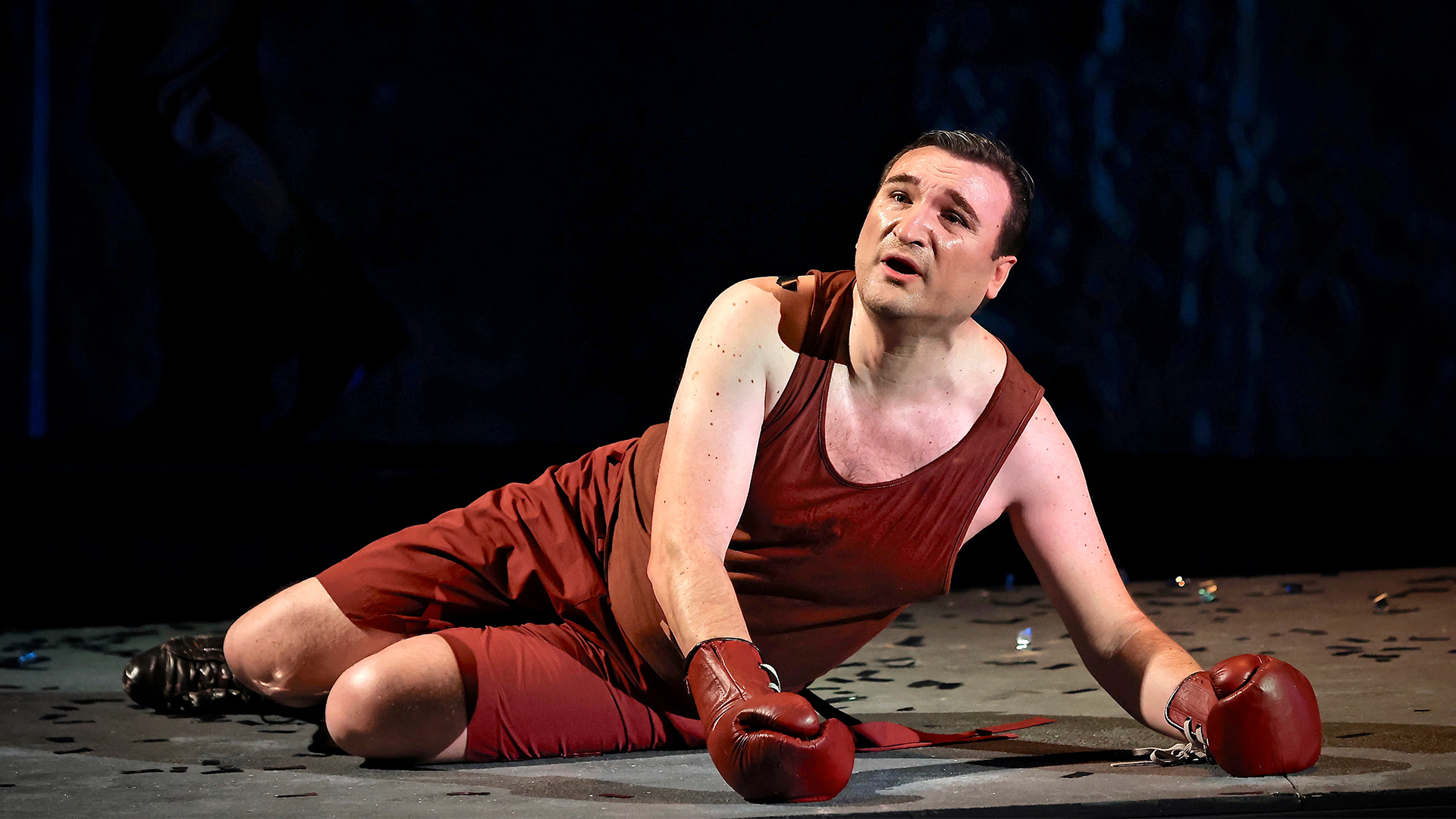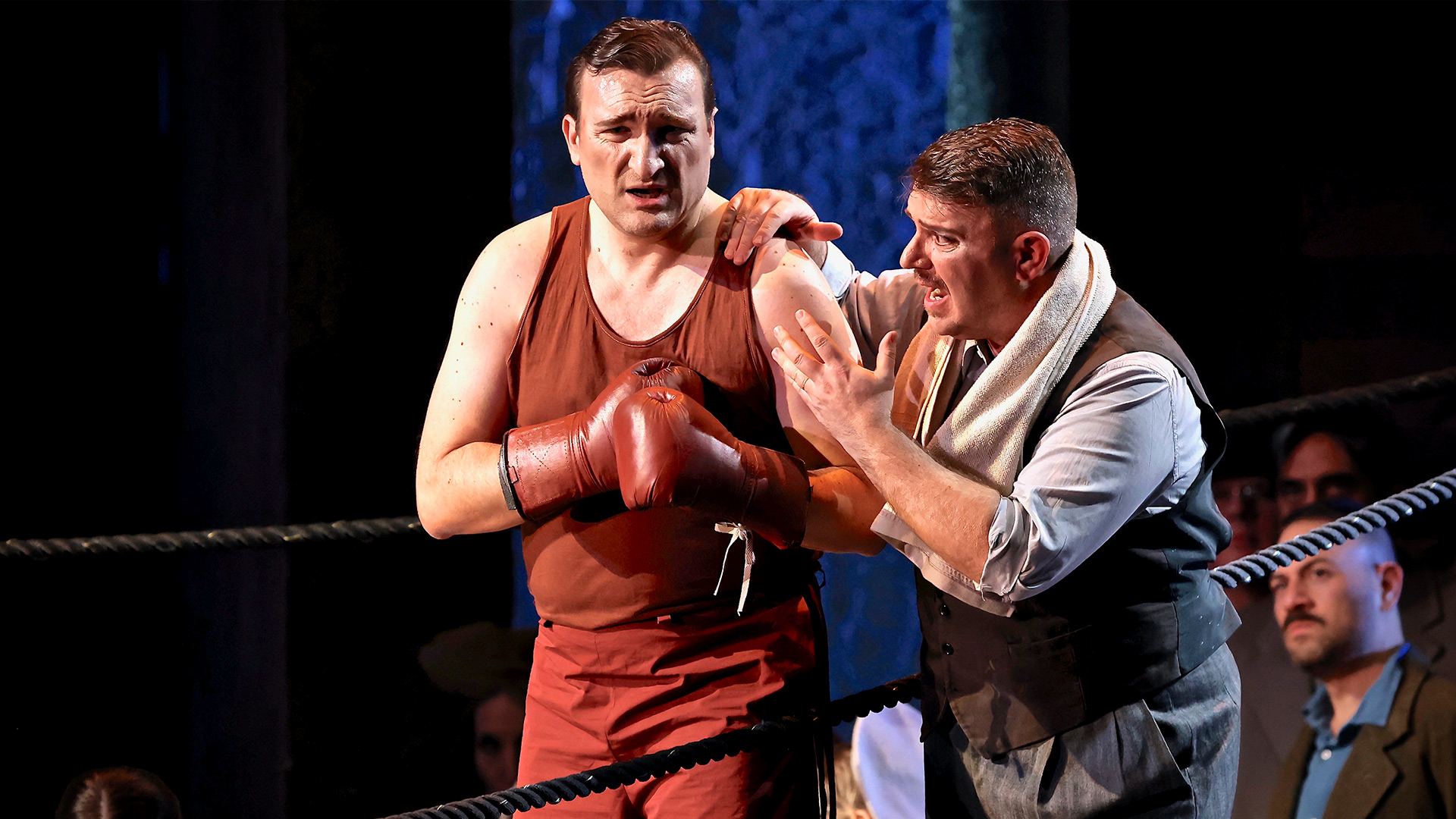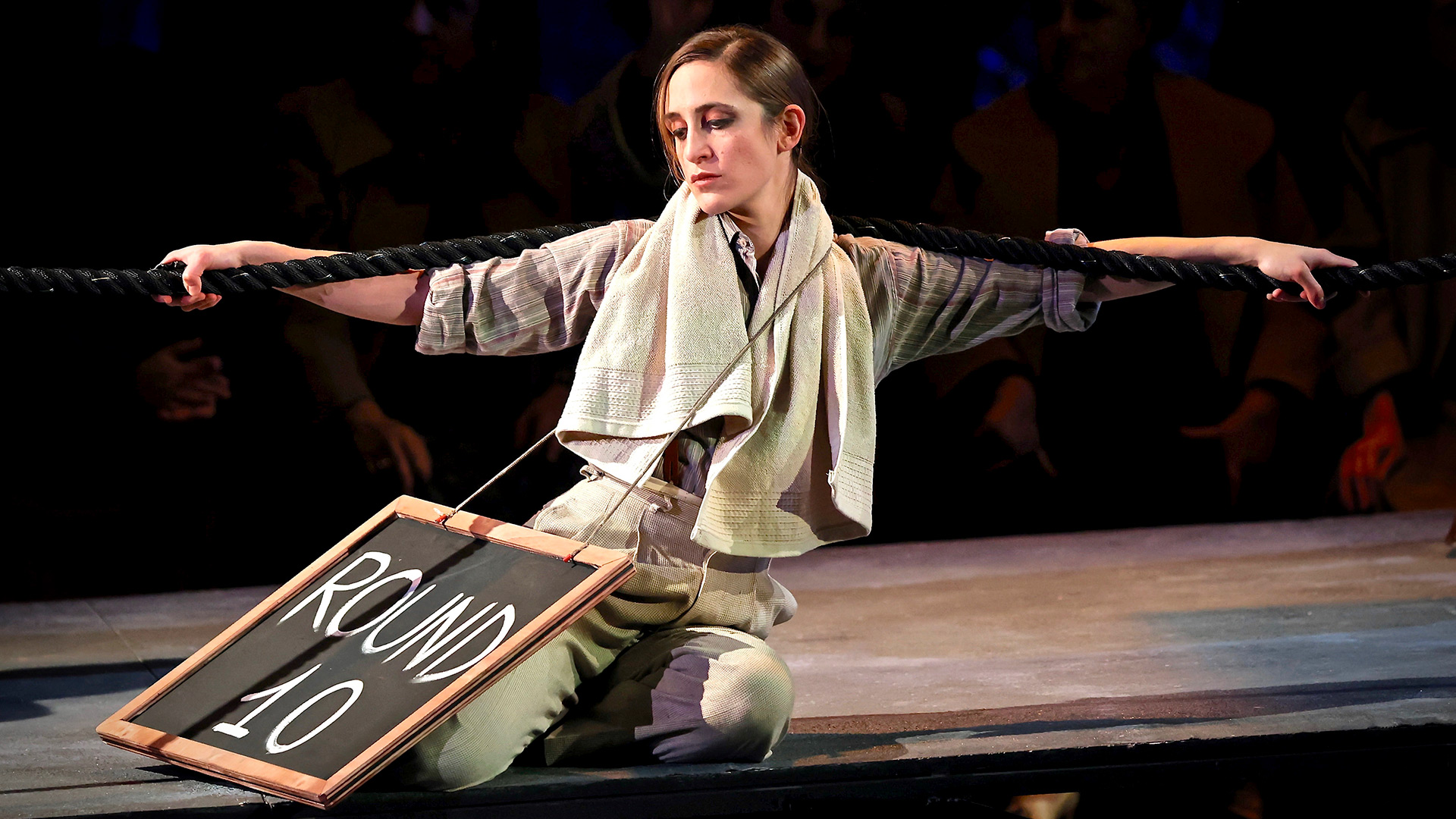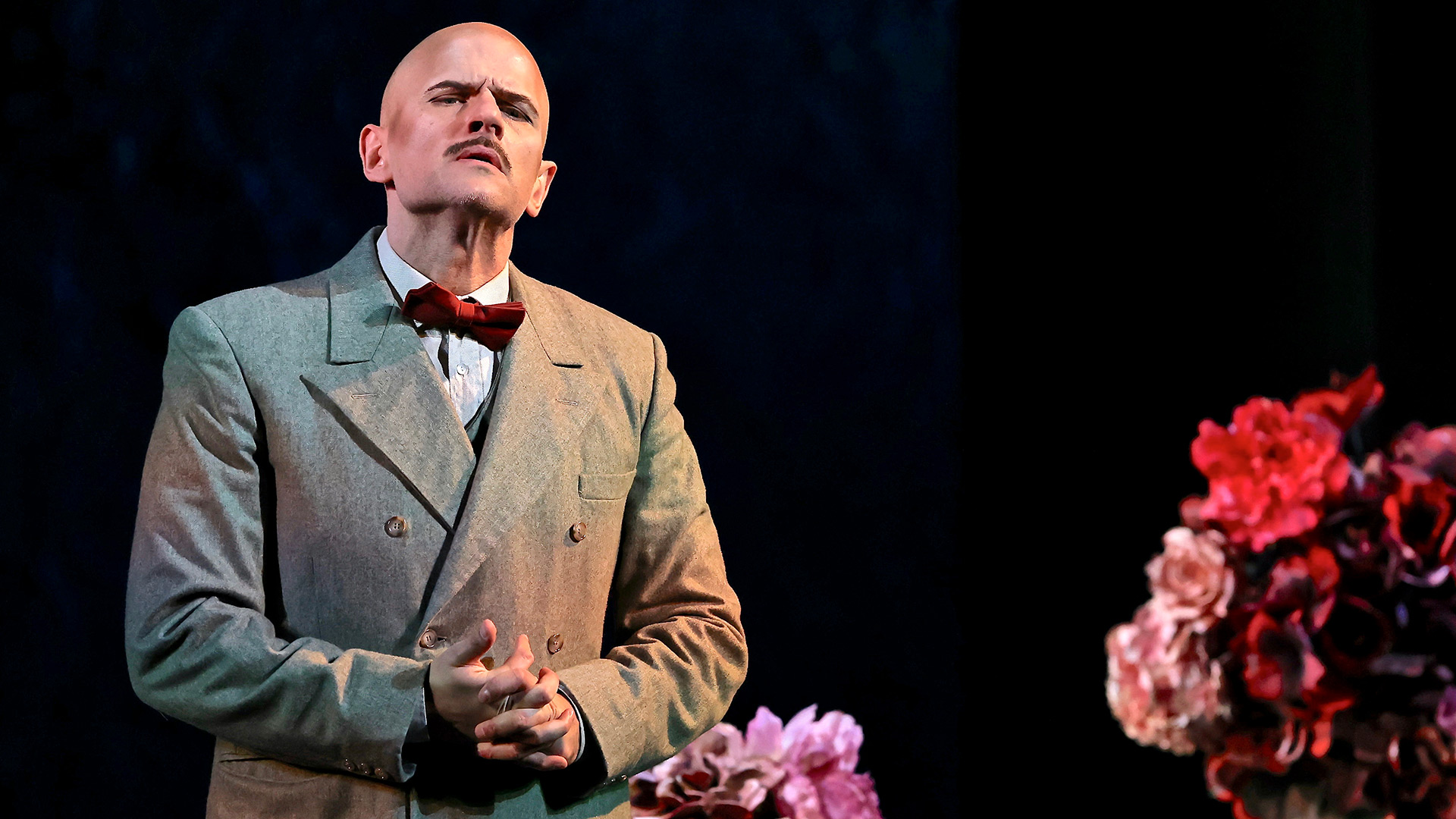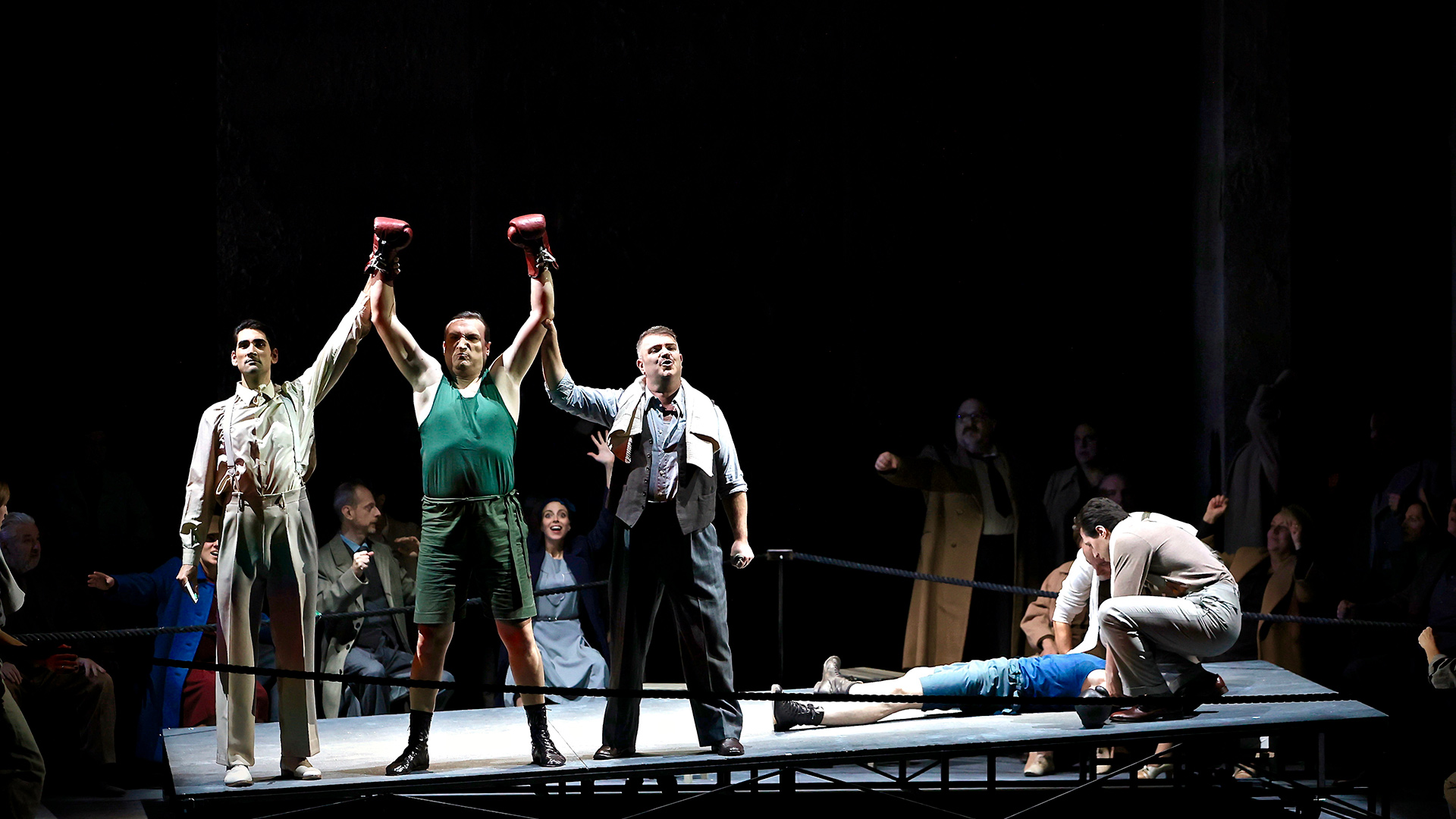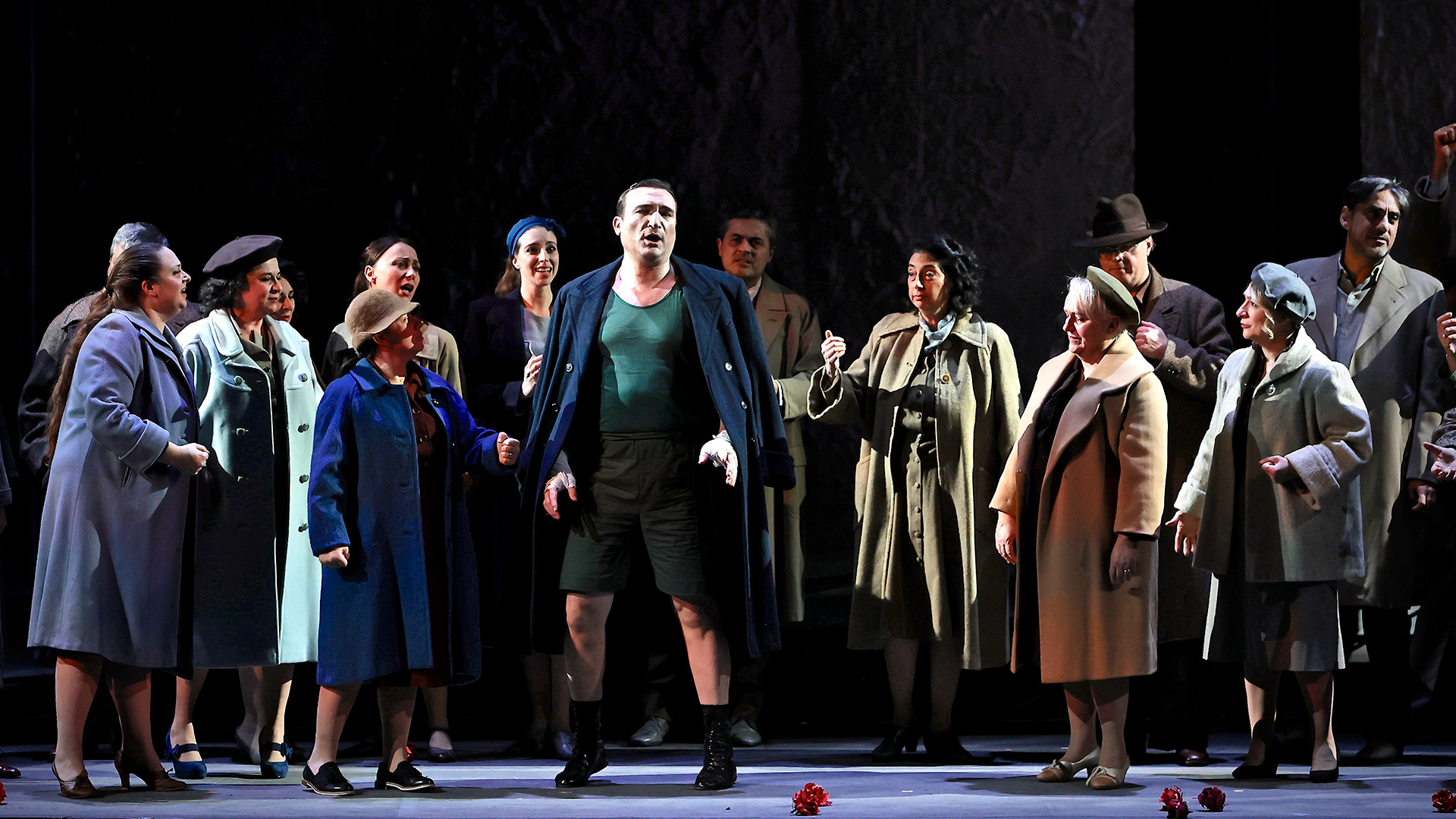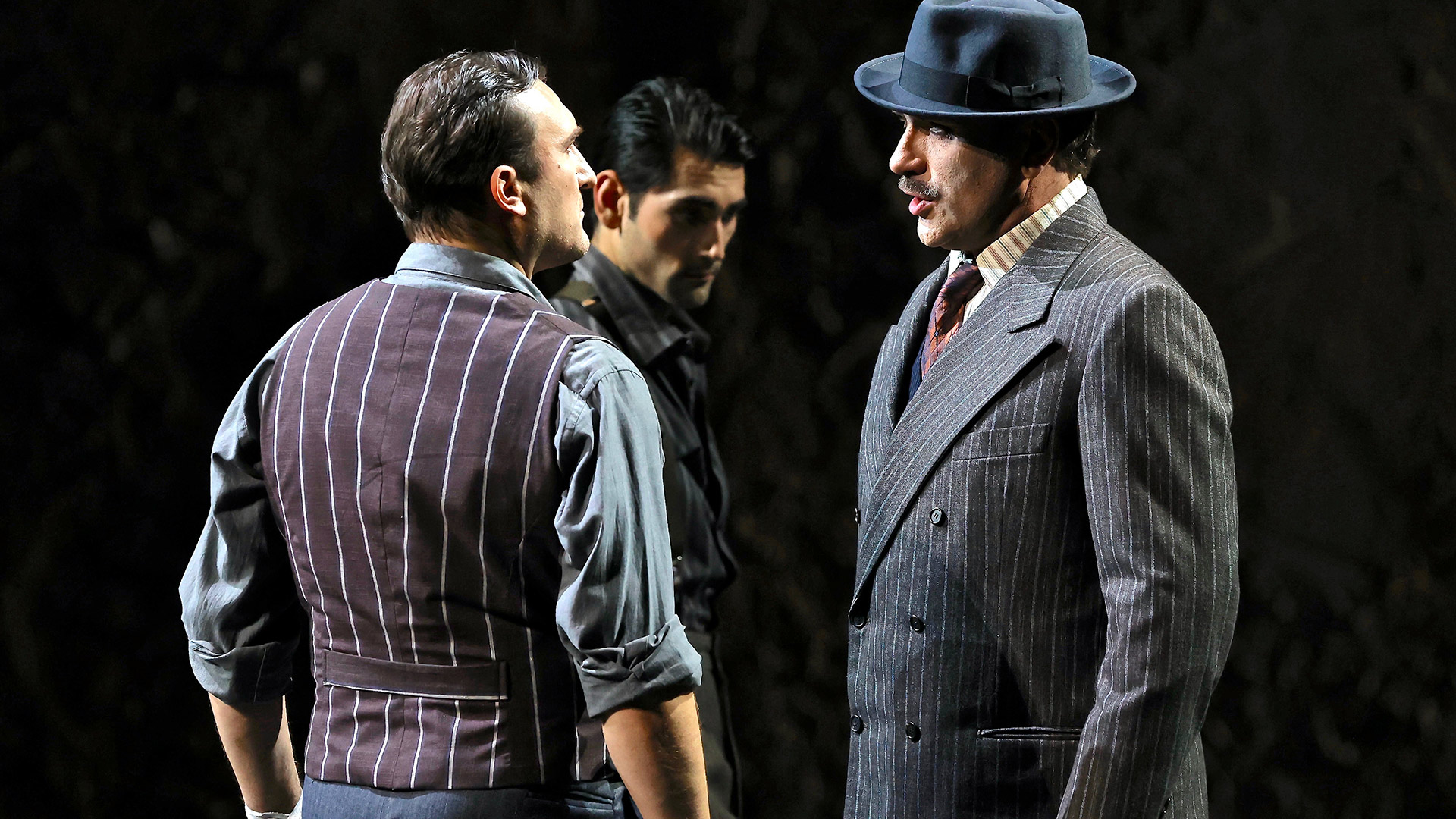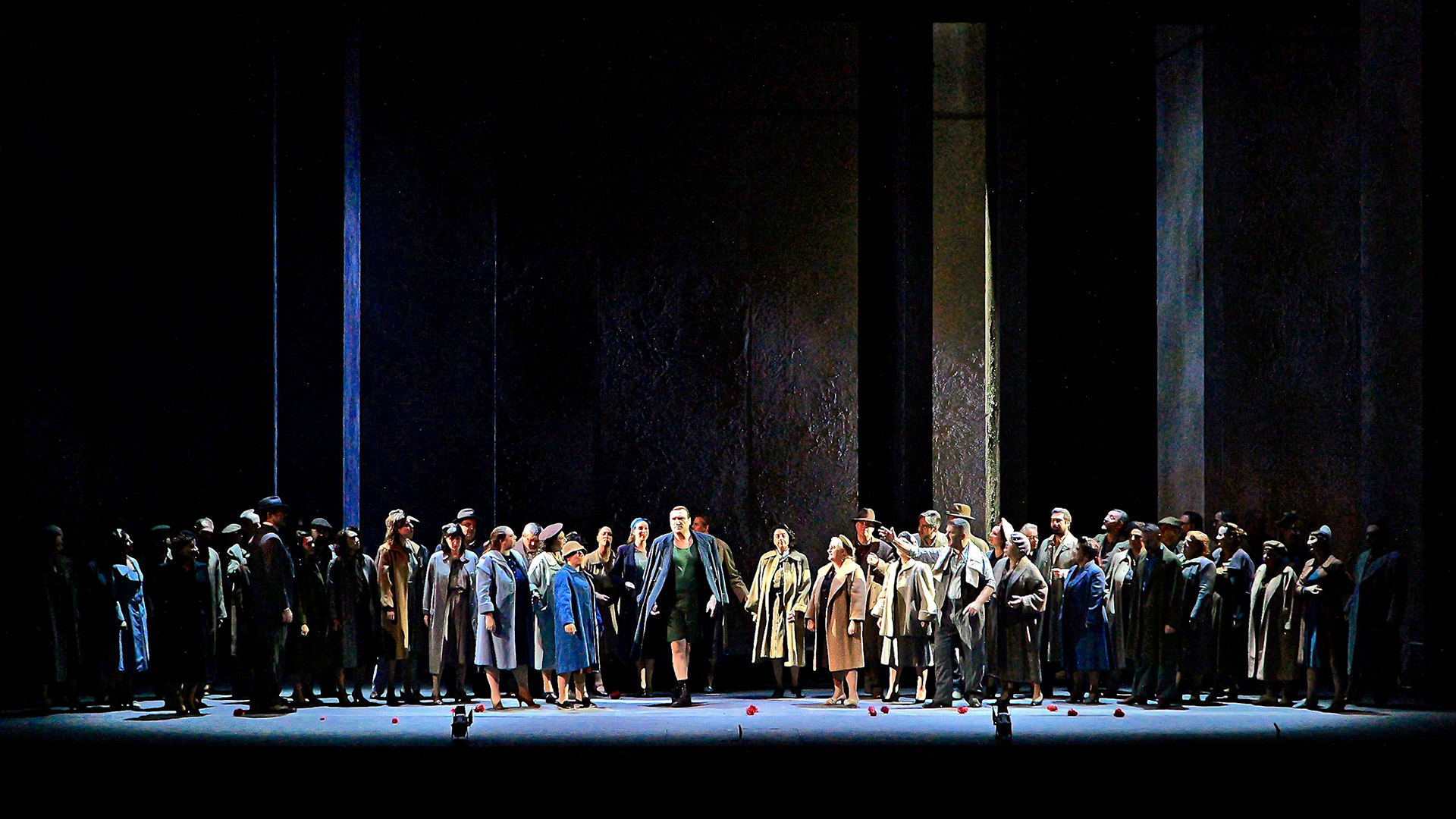Opera in a prologue and two acts by
Maurizio Fabrizio
with libretto by Guido Morra
Commissioned by Fondazione Teatro Carlo Felice
on the occasion of the 60th anniversay of Édith Piaf’s death (1915–1963)
World premiere
Characters and interpreters:
Édith Piaf
Salome Jicia
Marcel Cerdan
Francesco Pio Galasso
Jake LaMotta
Claudio Sgura
Clifford Fischer
Blagoj Nacoski
Franckie Corbo
Giovanni Battista Parodi
Marie Hannequin
Alena Sautier
Marinette Cerdan
Valentina Coletti
Joe Longman
Manuel Pierattelli
Harry Burton
Marco Camastra
Conductor
and orchestrator
Donato Renzetti
Stage production by the students of Accademia Ligustica di Belle Arti
Zoe Amato, Cecilia Danesi, Sara Guzzardi, Gaia Macassaro, Beatrice Napoli, Ilaria Romano, Natalia Sacco, Olimpia Cecilia Tonini
Video projection by Silvia Peschiera, Carola Rabaglio
With the contribution of Direzioni Allestimenti Scenici del Teatro Carlo Felice
with the artistic coordination by the academy’s teachers.
Director
Elisabetta Courir
Stage and costume design
Francesca Marsella
Lighting design
Luciano Novelli
Video editing
Angelo Boriolo
Édith’s costume in the finale of the second act was crafted by Leo Fabrizio.
A new production by Fondazione Teatro Carlo Felice di Genova
in collaboration with Accademia Ligustica di Belle Arti di Genova
Orchestra, choir and technicians of Opera Carlo Felice
Claudio Marino Moretti, choirsmaster
Staging director
Luciano Novelli
Stage musical director
Simone Ori
Répétiteurs
Sirio Restani, Antonella Poli
Stage musical assistants
Andrea Gastaldo, Anna Maria Pascarella
other Choir Master
Patrizia Priarone
Lighting Master
Umberto Musso
Supertitle Master
Simone Giusto
Head of musical archives
Simone Brizio
Scenic director
Alessandro Pastorino
Vice scenic director
Sumireko Inui
Orchestration
Giovanni Panella
Consolle supervisor
Andrea Musenich
Stage technicians foreman
Gianni Cois
Electrician foreman
Marco Gerli
Tooling foreman
Tiziano Baradel
Audio/video foreman
Walter Ivaldi
Head of tailoring, shoemaking, make-up and wigs
Elena Pirino
Make-up and hair co-ordinator
Raul Ivaldi
Scenes, costumes and props
Fondazione Teatro Carlo Felice
Footwear
Epoca
Wigs
Mario Audello
Surtitles by
Enrica Apparuti
Opera in brief
by Ludovica Gelpi
The opera in a prologue and two acts Édith was created in 2023, commissioned by the Fondazione Teatro Carlo Felice from Maurizio Fabrizio to celebrate the French singer-songwriter Édith Piaf on the 60th anniversary of her death. Édith Piaf was one of France’s greatest singer-songwriters; born in 1915 in Paris, she made her way through a troubled life, asserting herself not only for her great musical talent, but also for her histrionic, extrovert and resolute personality. Throughout his career, he forged links with some of the most influential artists of his time, becoming a reference point in the French cultural environment. His hits include some of the songs that have made song history, such as La Vie en rose from 1945 and Non, je ne regrette rien, from 1950. It is precisely the world of song that links Édith to the composer Maurizio Fabrizio, who has been a protagonist on the Italian scene since the 1970s – his songs have been interpreted by some of the most famous artists, including Mia Martini, Ornella Vanoni, Miguel Bosè, Renato Zero, and many others. Several collaborations with lyricist Guido Morra, who on this occasion is the author of the libretto.
Édith focuses on the love story between the singer-songwriter and boxer Marcel Cerdan between 1948 and 1949. In those years they were both at the height of their success: Édith had achieved international fame, the boxer won the title of middleweight world champion. Thus, while travelling between Paris and New York, the two met and began their clandestine relationship – Cerdan was in fact married.
The prologue sees Édith and Marie, her personal assistant, engaged in conversation: Édith tells her own story, from humble beginnings to progress in the difficult world of art. Just then she receives flowers from Marcel, whom she met the night before: it is the beginning of a new love. The first act begins during a decisive match: in Jersey City Cerdan faces Tony Zale for the world title. Right from the start, the theme of the action emerges: struggle. The fight naturally takes place in the ring, but boxing here is also a symbol of Marcel’s inner struggle – he too, like Édith, started from the bottom – as well as of the fight against corruption, represented by the mafioso Frankie Corbo, with whom Cerdan later clashes. Édith also struggles in a hostile environment; hers is a battle for self-assertion and freedom. The act ends with the meeting of the two lovers, who recognise themselves in their ideals and draw inspiration from each other’s strength. Specularly, the second act opened with a new match, in Detroit Cerdan challenged Jake LaMotta and came out the loser after a tough fight. In this case, the two lovers will not be reunited in the finale: Marcel dies in a plane crash while trying to reach Édith in New York. So it is that in the tragic epilogue, the protagonist faces one last battle, performing within hours of the terrible news and dedicating to her beloved an aria that speaks of the very struggle for freedom that united them. She will fight for both of us from now on.
Fabrizio translates the theme of the struggle into music through dynamic writing that describes the feelings by reproducing on the one hand the force of goodness and love, represented in particular by the strings, and on the other hand the opposing forces and difficulties that the protagonists encounter, represented by the brass. The important presence of the chorus also determines another plane, one in which the individual meets or clashes with ‘everyone’, present both as supporters – in the Act I match – and detractors – in the Act II match. The finale, with the last aria, sees the triumph of the ideals of strength and freedom of which Édith is a symbol.
